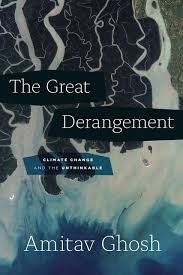
The start of 2020 is just around the corner. To mark the end of the decade, we take a look back at some of the top book reviews published since LSE Review of Books launched in 2012. Since then, we have featured over 2000 book reviews; in this list, we celebrate ten reviews that are amongst the most-read posts. Thank you to all our readers and contributors who have supported us through the decade!
 10. Xenofeminism. Helen Hester. Polity Press. 2018.
10. Xenofeminism. Helen Hester. Polity Press. 2018.
How do we conceive of a gender politics and feminism responsive to the technoscientic infrastructures that shape everyday life? In this long read review, Mareile Pfannebecker reflected on Xenofeminism and its attempt to offer a queer- and trans-inclusive communist feminism that is rooted in our bodies’ inextricable relationship to technology and focused on ‘repurposing’, rather than outright refusing, the tools of capitalist technoscience.
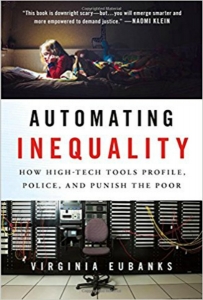 9. Automating Inequality: How High-Tech Tools Profile, Police and Punish the Poor. Virginia Eubanks. St Martin’s Press. 2018.
9. Automating Inequality: How High-Tech Tools Profile, Police and Punish the Poor. Virginia Eubanks. St Martin’s Press. 2018.
Virginia Eubanks outlines the life-and-death impacts of automated decision-making on public services in the US through three case studies relating to welfare provision, homelessness and child protection services. As Eubanks centralises the stories and experiences of her subjects with sensitivity while also drawing on statistical data, Louise Russell-Prywata praised this as a valuable and compelling contribution to discussions of inequality and poverty today.
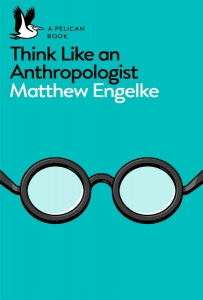 8. Think Like an Anthropologist. Matthew Engelke. Pelican. 2017.
8. Think Like an Anthropologist. Matthew Engelke. Pelican. 2017.
Matthew Engelke offers a concise history of anthropology, drawing on a variety of ethnographic works and theoretical tools to dissect nine key concepts and their changing meanings for anthropologists. While the book’s perspective is focused on European and North American schools of thought, Dick Powis still welcomed it as an engaging primer particularly suited for those newly encountering anthropology as a discipline.
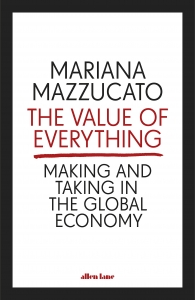 7. The Value of Everything: Making and Taking in the Global Economy. Mariana Mazzucato. Allen Lane. 2018.
7. The Value of Everything: Making and Taking in the Global Economy. Mariana Mazzucato. Allen Lane. 2018.
Mariana Mazzucato explores the concept of value today, showing how value extraction is now more highly rewarded than value creation. Wannaphong Durongkaveroj praised this as a meticulous and insightful analysis that will help to reopen the debate into ‘the value of everything’.
James C. Scott contributes to his longstanding intellectual project of re-evaluating the role of the state in political thought by looking at the development of the early agrarian states to challenge narratives of progress founded on state formation. While acknowledging that a number of objections can be raised against the historical claims of the book, Alex Sager welcomed it for encouraging vital critical interrogation of the supposed inevitability and neutrality of state institutions today.
 5. Hillbilly Elegy: A Memoir of a Family and Culture in Crisis. J.D. Vance. HarperCollins. 2016.
5. Hillbilly Elegy: A Memoir of a Family and Culture in Crisis. J.D. Vance. HarperCollins. 2016.
Former marine and Yale Law School graduate J.D. Vance offers a personal account of growing up in – and eventually leaving – an impoverished white working-class ‘hillbilly’ community experiencing social and economic crisis. While the book has been praised for offering insights into why Donald Trump proved so attractive to the US white working class in the 2016 Presidential election, Peter Carrol was less convinced by Vance’s broader and overtly politicised sociological analysis of his community. Nonetheless, he found the vividness of Vance’s unflinching recollections compelling.
 4. Why I’m No Longer Talking to White People about Race. Reni Eddo-Lodge. Bloomsbury. 2017.
4. Why I’m No Longer Talking to White People about Race. Reni Eddo-Lodge. Bloomsbury. 2017.
Racial inequalities are stark, yet normalised. White people are privileged yet complacent, and refuse to listen. In her phenomenally brilliant and successful book, Reni Eddo-Lodge catalyses an urgent conversation about race today. Alice Evans praised Why I’m No Longer Talking to White People about Race for showing readers the building blocks of a fairer Britain.
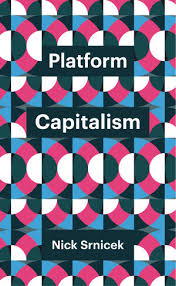 3. Platform Capitalism. Nick Srnicek. Polity Press. 2017.
3. Platform Capitalism. Nick Srnicek. Polity Press. 2017.
Nick Srnicek examines the rise of platform-based businesses from the 1970s to the present and how these are transforming the workings of contemporary capitalism. While she would have welcomed more discussion of potential sites of future contestation, Sin Yee Koh applauded this book for its logical and accessible portrayal of the evolution of platform capitalism.
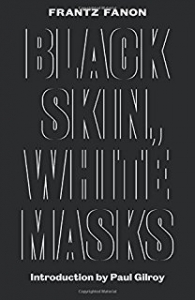 2. Black Skin, White Masks. Frantz Fanon (trans. by Charles Lam Markmann). Pluto Press. 2017 [1952].
2. Black Skin, White Masks. Frantz Fanon (trans. by Charles Lam Markmann). Pluto Press. 2017 [1952].
In Black Skin, White Masks – first published in 1952 – Frantz Fanon offers a potent philosophical, clinical, literary and political analysis of the deep effects of racism and colonialism on the experiences, lives, minds and relationships of black people. Leonardo Custódio reflects on the enduring relevance of Fanon’s classic work, here published in a new edition featuring an introduction by Paul Gilroy, observing that it is ‘still a powerhouse’.
In The Great Derangement: Climate Change and the Unthinkable, acclaimed novelist Amitav Ghosh offers a new non-fiction work that aims to confront our urgent climate emergency by reflecting on our ‘deranged’ modes of political and socio-economic organisation via three themes: literature, history and politics. In the most read LSE RB review of the 2010s, Alexandre Leskanich admired the book for both examining and manifesting the limits of human thought when it comes to the spectre of environmental catastrophe.
Feature image is courtesy of Malcolm Lightbody on Unsplash.


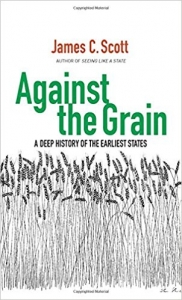 6. Against the Grain: A Deep History of the Earliest States. James C. Scott. Yale University Press 2017.
6. Against the Grain: A Deep History of the Earliest States. James C. Scott. Yale University Press 2017.